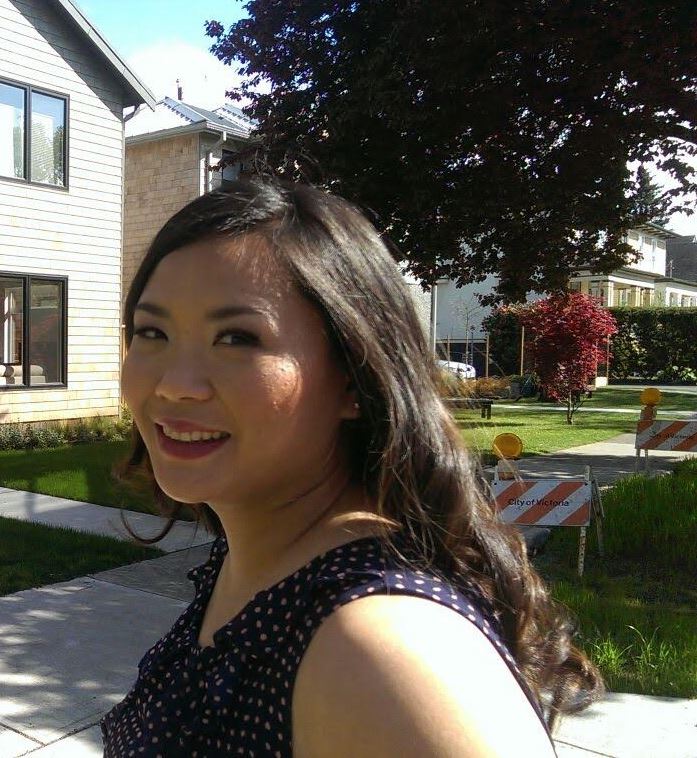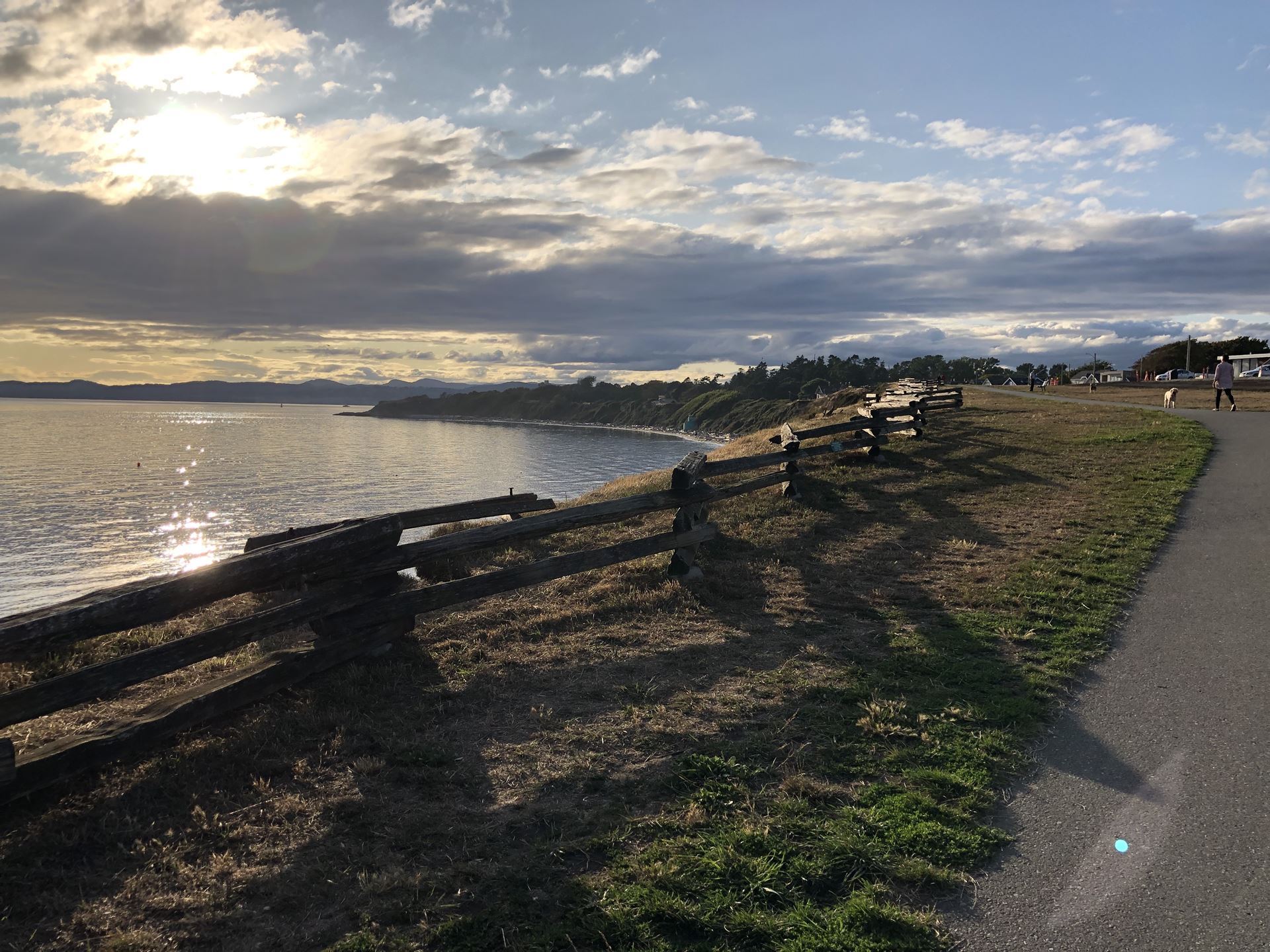 Louise Chim (she/her/hers)
Louise Chim (she/her/hers)
School name: University of Victoria
Type of school: Public university (22,000 students) with undergraduate and graduate programs.
School locale (including state and country): Located on Vancouver Island, British Columbia, Canada on the traditional territories of the lək̓ʷəŋən, Songhees, Esquimalt, and W̱SÁNEĆ peoples.
How many years have you taught psychology? 11 years (2 years co-teaching as a graduate student and 9 years post-PhD)
Classes you teach: Introductory Psychology (I and II), Statistical Methods (I and II), Cultural Psychology, Psychology of Diversity
Specialization (if applicable): e.g. clinical, cognitive, teaching, etc. I’m a teaching focused faculty member and I teach primarily undergraduate courses. My training is in cultural psychology and affective science.
 Average class size: I teach both range of class sizes (50 to 300) depending on the course and term. I also coordinate the introductory psychology program with about 900+ students per term.
Average class size: I teach both range of class sizes (50 to 300) depending on the course and term. I also coordinate the introductory psychology program with about 900+ students per term.
What’s the best advice about teaching you’ve ever received? When I was starting out and had many new course preps on topics I wasn’t an “expert” in, my mentor told me to aim for “good enough” rather than trying to create the perfect course/class/assessment. I continue to strive to make iterative improvements in my courses rather than trying to do everything all at the same time.
What book or article has shaped your work as a psychology teacher?
What has shaped my work as a psychology teacher the most is the learning and reflecting that happens from interactions with the teaching community. That has been the most pleasantly surprising thing that has come from becoming a psychology teacher. The community that has shaped my work as a psychology teacher include workshops and groups organized locally at my university (e.g., psychology teaching seminars, working groups to support instructors teaching first-year classes, workshops and symposia about decolonizing teaching and learning) to regional and international conferences (e.g., TIP Northwest [https://www.tipnorthwest.org/], PsychOne [http://www.psychoneconference.org/])
Briefly tell us about your favorite lecture topic or course to teach. My two favorite courses to teach are cultural psychology and statistics.
With cultural psychology, my favorite part is when students
- realize how much their assumptions and biases about what makes a “good person” is fundamentally shaped by their cultural context;
- recognize how much of what we know about psychology is not a diverse representation of the world;
- and see themselves represented in some of the research we talk about in class.
With statistics, I find it rewarding when the course exceeds their expectations (and it ends up being even one of their favorite courses in the term) and when students who come in anxious with a fixed mindset about statistics realize that they can grow and learn and ultimately are able to succeed in the course.
Briefly describe a favorite assignment or in-class activity.
I enjoy using community engaged learning projects in my statistics class. Students apply what they are learning in class to a larger project and also interact and learn from community members.
In my cultural psychology class, I like to do activities that show them the individual variation in psychological concepts. For example, I ask students write down all the choices they’ve made today (including some possible choices they may have made in class) to show that there is variation in what people consider a choice or not (e.g., Savani, Markus, Naidu, Kumar, & Berlia, 2010).
What teaching and learning techniques work best for you?
I find that I am my most authentic teaching self when I have students engage in active learning in class. I try my best even in more “lecture-style” large classes to intersperse discussion, activities, multiple choice questions, low stakes writing or assignments in class. I also try to have a balance of activities where they are engaging in self-reflection and when they have to work in pairs or smaller or larger groups.
What’s your workspace like? In terms of set-up, I have dual monitors and a standing desk but decorating my office space is still a work in progress after 9 years of being in the same office.
Three words that best describe your teaching style. Approachable, relatable and relevant
What is your teaching philosophy in 8 words or fewer?
I don’t think this quite sums up my teaching philosophy but the best I’ve come up is: “Create flexible and transparent structure and guidelines.
What about teaching do you find most enjoyable?
See previous question about which courses are my favorite ones to teach.
What is something your students would be surprised to learn about you?
That I played collegiate ice hockey.
What are you currently reading for pleasure?
I just finished The Skin We’re In by Desmond Cole.
What tech tool could you not live without?
A learning management system, particularly for coordinating and structuring large intro psych classes.
What is your hallway chatter like? What do you talk to colleagues about most (whether or not it is related to teaching/school)?
You’ll find me talking to colleagues most about teaching-related questions and good / new places to eat in Victoria.
Has your teaching changed because of the Covid19 pandemic? If so, how? (positive and/or negative changes)
One change that happened because of the Covid-19 pandemic is that my university provided us with easy access to online tools such as zoom and Microsoft teams. With a lot of students commuting to campus, this provides students with easier (virtual) access to office hours.
PSYCHSESSIONS Podcast: In this episode Garth interviews Louise Chim from the University of Victoria in Victoria, Canada. She played on the hockey team for 2 years as a Harvard undergraduate before pursuing graduate work in psychology / affective science at Stanford. Her resilience and patience are impressive, and she now serves as an associate teaching professor at UVic, and is actively involved in TIP Northwest & Psi Chi.
https://psychsessionspodcast.libsyn.com/2021/10
